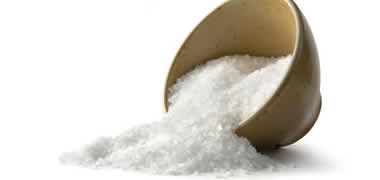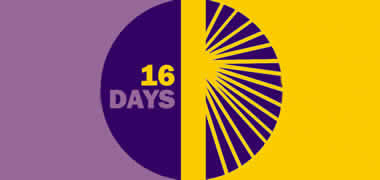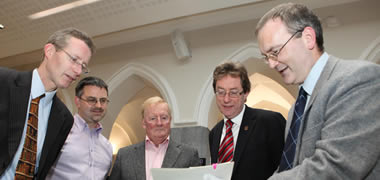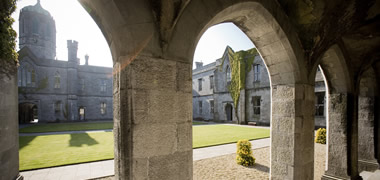-
Courses

Courses
Choosing a course is one of the most important decisions you'll ever make! View our courses and see what our students and lecturers have to say about the courses you are interested in at the links below.
-
University Life

University Life
Each year more than 4,000 choose University of Galway as their University of choice. Find out what life at University of Galway is all about here.
-
About University of Galway

About University of Galway
Since 1845, University of Galway has been sharing the highest quality teaching and research with Ireland and the world. Find out what makes our University so special – from our distinguished history to the latest news and campus developments.
-
Colleges & Schools

Colleges & Schools
University of Galway has earned international recognition as a research-led university with a commitment to top quality teaching across a range of key areas of expertise.
-
Research & Innovation

Research & Innovation
University of Galway’s vibrant research community take on some of the most pressing challenges of our times.
-
Business & Industry

Guiding Breakthrough Research at University of Galway
We explore and facilitate commercial opportunities for the research community at University of Galway, as well as facilitating industry partnership.
-
Alumni & Friends

Alumni & Friends
There are 128,000 University of Galway alumni worldwide. Stay connected to your alumni community! Join our social networks and update your details online.
-
Community Engagement

Community Engagement
At University of Galway, we believe that the best learning takes place when you apply what you learn in a real world context. That's why many of our courses include work placements or community projects.
2011
All 2011
Study Calls Sodium Intake Guidelines into Question

Wednesday, 23 November 2011
For years, doctors have warned that too much salt is bad for your heart. Now a new study co-led by an NUI Galway clinical researcher suggests that both high and low levels of salt intake may put people with heart disease or diabetes at increased risk of cardiovascular complications. The study, published in the Journal of the American Medical Association (JAMA), found that moderate salt intake is associated with the lowest risk of cardiovascular events, whereas higher intake of sodium was associated with an increased risk of stroke, heart attack and other cardiovascular events while low intake was associated with an increased risk of cardiovascular death and hospitalisation for congestive heart failure. The research was co-led by Professor Martin O’Donnell, Professor of Translational Medicine, NUI Galway and Dr Salim Yusuf, Population Health Research Institute (PHRI) at McMaster University in Canada and Hamilton Health Sciences. Professor O’Donnell is also Associate Director of the HRB Clinical Research Facility at NUI Galway and University Hospital Galway. “This research addresses an important population health issue – the association between sodium (salt) intake and cardiovascular disease,” said NUI Galway’s Professor O’Donnell. “This area has become topical again, with the recent publication of another paper in JAMA reporting an association between low-sodium intake and cardiac death. In general, previous observational studies have either reported a positive association, no association or an inverse association between sodium intake and heart disease and stroke. This has resulted in a lot of controversy. Our study is the first to report a J-shaped association between sodium intake and cardiovascular disease, which may explain why previous studies have found different results.” Compared with moderate sodium excretion (between 4 to 5.99 grams per day), the researchers found that sodium excretion of greater than 6-7 grams per day was associated with an increased risk of all cardiovascular events, and sodium excretion of less than 3 grams per day was associated with an increased risk of cardiovascular death and hospitalisation for congestive heart failure. The findings call into question current guidelines for salt intake, which recommend less than 2.3 grams (or 2,300 mg) per day. The guidelines are mostly based on previous clinical trials that found blood pressure is lowered modestly when sodium intake is reduced to these levels (which was also found in the present study), but there are no large studies looking at whether such low levels of sodium intake reduce the incidence of heart attacks and stroke. Clarifying the optimal daily intake of sodium is particularly important in patients with established heart disease, as they may be especially vulnerable to the cardiovascular effects of very high- and low-salt intake and are most likely to receive recommendations on restricting sodium in their diets, the authors concluded. “Our research confirms the association between high sodium intake and increased risk of cardiovascular disease, which emphasizes the importance of salt reduction in those consuming high-sodium diets (over 6-7g per day) and the importance of efforts to reduce sodium content of many high-salt manufactured foods. However, our study, together with other recent studies, raises uncertainty about whether those with moderate/average sodium intake should reduce their intake further. The only way to resolve this uncertainty is with a large randomized controlled trial that determines whether reducing moderate sodium intake to lower levels results in lower rates of heart disease and stroke. While we accept there are challenges to conducting such trials, they are required urgently given their public health implications’ said Professor O’Donnell. For the observational study, the researchers examined 28,880 people at increased risk of heart disease from the ONTARGET and TRANSCEND trials, which were conducted from 2001-2008. The researchers estimated 24-hour urinary sodium and potassium excretion from a morning fasting urine sample. During follow-up, over 4,500 cardiovascular events occurred making this the most powerful study examining the relationship between sodium excretion (which is a surrogate measure of sodium consumption), as well as potassium excretion and cardiovascular events. Extensive and careful statistical analytic methods were used to determine the association of urinary sodium and potassium with cardiovascular events – heart attack, stroke, hospitalisation for congestive heart failure and death. In addition to the sodium findings, the researchers found higher urinary potassium excretion was associated with lower stroke risk. They concluded this is a potential intervention that merits further evaluation for stroke prevention. -ends-
>> Read full story about Study Calls Sodium Intake Guidelines into Question
16 Days of Activism against Gender Violence

Wednesday, 23 November 2011
The Global Women's Studies Programme at NUI Galway will host a series of public lectures a part of the international 16 Days campaign against Gender Violence. NUI Galway joins over 3,700 organisations, in over 164 different countries, to pay recognition to the ongoing problem of violence against women. This year, the 16 Days campaign runs from 25 November to 10 December. The campaign provides an opportunity to reflect on violence against women as one of the most pervasive human rights abuses worldwide, and to consider the particular challenges faced in ensuring women's rights in Ireland and abroad. This year's programme links the national to the international with presentations on domestic violence and the recession, the experiences of Refugee and Asylum seeking women in Ireland, the establishment of the Galway Sexual Assault Treatment Unit and the experiences of Iranian women's rights activists. On Tuesday, 29 November, Sheelan Yousefidezah, Women's Right's Activists at Trinity Community Initiative Fund and Secretary of Amnesty Iran group at Amnesty International Ireland, will host a lecture entitled ‘Keeping Iran's Heart Beating - documenting the experiences of Iranian Women's Rights Activists’. The lecture will take place at 12pm in MY129, Áras Moyola. Niamh Bonner, Galway Sexual Assault Treatment Unit, will deliver a lecture on ‘Sexual Assault Treatment Services in Ireland’ on Thursday, 1 December, in MY123 - Seminar Room 1, Áras Moyola at 1pm. This seminar is supported by the NUI Galway Feminist Society. State Violence Against Refugee and Asylum Seeking Women and Community Responses in a local Irish context will be the focus for the third lecture. Delivered by participants from the Galway Refugee Support Group, the lecture will take place on Thursday, 8 December, in CA101 - Lecture Hall 2, Cairnes Building, from 1-2pm. This seminar is also supported by the NUI Galway Feminist Society. The final lecture in this series, ‘Just Another Day - Responding to domestic violence in the Recession’ will take place on Friday, 9 December. Sharon O'Halloran, Director of SAFE Ireland, will deliver the lecture in CA101 - Lecture Hall 2, Cairnes Building, at 1pm. Following this lecture, The European Women's Studies Class will show their photographic exhibition on 'Gender and Poverty in Galway'. All the lectures are open to the public. For more information contact Dr Stacey Scriver in NUI Galway’s School of Political Science and Sociology, at 091 494116 or stacey.scriver@nuigalway.ie. Further information is also available at http://www.facebook.com/pages/16-Days-of-Activism-to-End-Violence-Against-Women-at-NUIG/280584008649176?v=info -Ends-
>> Read full story about 16 Days of Activism against Gender Violence
Unseen Documents Unveiled during Launch of Duddy Archive at NUI Galway

Tuesday, 22 November 2011
Documents highlighting the secrecy and tension involved in communication and negotiation between the British government and the IRA throughout ‘the Troubles’ were today (Tuesday, 22 November) unveiled in NUI Galway at the launch of the Brendan Duddy Archive on campus. The selected documents include Brendan Duddy’s hand written records of negotiations during the hunger strike and a letter from the IRA to the British Prime Minister Harold Wilson. Speaking at the launch and on behalf of the Duddy family, Larry Duddy, said: “The family are delighted that the private papers have been donated to NUI Galway. They hope that analysis of these papers will assist current and future generations to understand however complex and how ever long a conflict has gone on with the dedication and commitment shown by Brendan Duddy a resolution can always be found.” The symposium Negotiating Peace, organised in association with the launch of the private papers of Brendan Duddy, brought together prominent figures from the worlds of academia and diplomacy to explore key questions surrounding the negotiated settlement of violent conflicts, drawing in particular on the experience of negotiation in the Irish peace process. Symposium speakers inlcuded Seán Ó hUiginn, former senior Irish diplomat who was deeply involved in the Irish government contribution to the peace process; former senior British government official Michael Oatley, a key British official involved in back-channel communication with the Republican leadership over many years; and Professor Paul Arthur, Honorary Associate at the International Conflict Research Centre (INCORE), former Professor of Politics and Director of the Graduate Programme in Peace and Conflict Studies at the University of Ulster. Speaking at NUI Galway, Michael Oatley emphasised the need to understand and differentiate between the motivation for differing instances of political violence, and the importance of seeking to establish dialogue. He applauded Brendan Duddy's work as an extraordinary example of what could be achieved by a brave and determined private individual. The archive holds documents from the three main periods during which Brendan Duddy secretly acted as an intermediary between the British government and the IRA. The first was in the early and mid 1970s when Duddy acted as intermediary during a series of contacts over the release of hostages and the ending of hunger strikes. This contact culminated in the long IRA ceasefire of 1975 during which British government and Provisional Republican representatives held a series of formal meetings in Duddy’s house in Derry. The archive includes his diaries of negotiation in 1975 and 1976 as well as many handwritten and typed messages exchanged between the two sides. In 1980 and 1981 Duddy acted again as intermediary during the Republican hunger strikes. In July 1981 he began to record these contacts, conducted mainly by telephone, in a red hardbound notebook, the ‘Red book’. The handwritten formal messages that were dictated to Duddy over the phone are interspersed with sparse personal comments and notations indicating how these contacts sometimes stretched through the night and indicating the intensity of the tensions at this negotiating intersection. Between 1990 and 1993 Duddy was again active at this intersection after a new Northern Ireland Secretary of State, Sir Peter Brooke, made the decision to try to incorporate the Provisionals in a political settlement, an effort continued by his successor Sir Patrick Mayhew. Duddy was called upon again to take up the role of intermediary and his archive includes the messages passed between the two sides as well as his own contemporary ‘narrative’ of the intense contacts of 1993. Dr Niall Ó Dochartaigh, Lecturer in Politics at NUI Galway explained: “These papers add significantly to our understanding of this crucial interface between the British state and the IRA. The papers show Brendan Duddy’s persistence and determination in pursuing the goal of a peace settlement and an end to the violence over a period of decades.” Deposited at NUI Galway in 2009, the archive contains over 700 descriptive items of paper and sound archives which have been catalogued by the Library's Special Collections staff and will be available to scholars and bona fide researchers from January 2012. The archive includes coded diaries of contact as well as messages exchanged between the British Government and the Provisional Republican leadership. The Duddy papers are directly related to the papers of Ruairí Ó Brádaigh, former President of Sinn Féin, which are also held in the James Hardiman Library at NUI Galway. Together these archives constitute one of the most important sources for understanding the attempts to resolve conflict in Ireland that culminated in the Good Friday Agreement of 1998. President of NUI Galway, Dr Jim Browne, said: “We all remember the horror of so much of the news emanating from Northern Ireland throughout the 1970s, '80s and '90s. All through that difficult period Brendan Duddy maintained a steadfast conviction that the conflict could only be ended through a negotiated settlement. I would like to take this opportunity to thank him for that steadfast commitment to peace. I would especially like to thank him, on behalf of NUI Galway, for making his Archive available to scholarship, so that others might be inspired and encouraged in the unrelenting work of peace-building, in similar situations internationally." Research on the papers involves collaboration between NUI Galway’s School of Political Science and Sociology and the University of Ulster’s International Conflict Research Centre (INCORE) and both institutions will collaborate to make a selection of primary documents from the collection freely available online through CAIN (the University of Ulster¹s Conflict Archive on the Internet) and NUI Galway’s library website. John Cox, Librarian at NUI Galway: "Clearly this is a collection with huge research potential and I can see us welcoming scholars from far and wide to Galway to work on the archive." The donation will be held in the James Hardiman Library at NUI Galway, home to a range of theatre, literary, historical and political archives. Collections include the archives of the Druid and Lyric Players theatres and of Taibhdhearc na Gaillimhe; the literary papers of John McGahern and Thomas Kilroy; the Huston Archive and original documents relating to the foundation of the Gaelic Athletic Association and the Northern Ireland 'Troubles'. ENDS
>> Read full story about Unseen Documents Unveiled during Launch of Duddy Archive at NUI Galway
Winter Conferrings at NUI Galway

Monday, 21 November 2011
Over 1,600 students will graduate from across the five colleges at NUI Galway at the University's winter conferring ceremonies, which take place from 23 to 25 November. Liam Ferrie will also be conferred with an honorary Master of Commerce degree. A native of Scotland, Liam is now living in Menlo, Co. Galway. In 1987 he founded the Irish Emigrant, a weekly online newsletter covering Irish news, and has been working as Editor and writer of the publication since then. He is also Founder of Irish Emigrant Publications, Ireland's longest-established Internet publishing company, producing online publications such as Professional Ireland, BookView Ireland, Arts Ireland and Sports Ireland. Speaking in advance of the ceremonies, President of NUI Galway, Dr Jim Browne, said: “NUI Galway is fortunate to be associated with many outstanding honorary graduates throughout its history. Today we are proud to honour Liam Ferrie for his contribution to the Irish diaspora. As founder and publisher of the Irish Emigrant he has fostered a sense of community among the global Irish diaspora, by delivering news from Ireland through his weekly online publication, the Irish Emigrant newsletter.” In addition, degrees, higher diplomas, Masters and PhDs will be awarded to students graduating over the three days from the College of Medicine, Nursing and Health Sciences; College of Engineering and Informatics; College of Business, Public Policy and Law; College of Science; and the College of Arts, Social Sciences and Celtic Studies. -ENDS-
>> Read full story about Winter Conferrings at NUI Galway
NUI Galway to Hold Information Evening in Cork

Monday, 21 November 2011
Secondary school students interested in NUI Galway are invited to an information evening in Cork on Thursday, 1 December. Parents and guardians are also particularly welcome to the event which runs from 7 to 9pm in the Silver Spring Moran Hotel in Cork City. The evening will begin with short talks about NUI Galway and some of the 60 courses it offers. Afterwards, current students and NUI Galway staff will be on hand at information stands to answer any individual questions in relation to courses offered by the University and about practical issues like accommodation, fees and scholarships, and the wide range of support services available to our students. The ever-increasing popularity of NUI Galway is in part due to a suite of innovative new programmes, developed in response to the changing needs of the employment market, including an Energy Engineering degree and a Maths and Education degree aimed at training Maths teachers. Visitors to the information evening will also get information on NUI Galway’s newest degree programme, a BA in Drama, Theatre and Performance Studies which is brand new for 2012. “NUI Galway has a great deal to offer. Our own students tell us our lecturers are inspirational and challenge them to achieve their full potential. The student experience in Galway is second to none, and we want to bring a taste of that to Cork, while also providing all the practical information on accommodation, CAO points, fees, scholarships and courses. With so many courses on offer, this event in Cork is a perfect opportunity to meet current students and our lecturers to see what degree might be the right fit”, says Caroline Loughnane, Director of Marketing and Communications at NUI Galway. To find out more about the information evening in Cork, contact NUI Celine O’Donovan, Schools Liaison Office at NUI Galway, on 087 239 1219 or celine.odonovan@nuigalway.ie. -Ends-
>> Read full story about NUI Galway to Hold Information Evening in Cork















